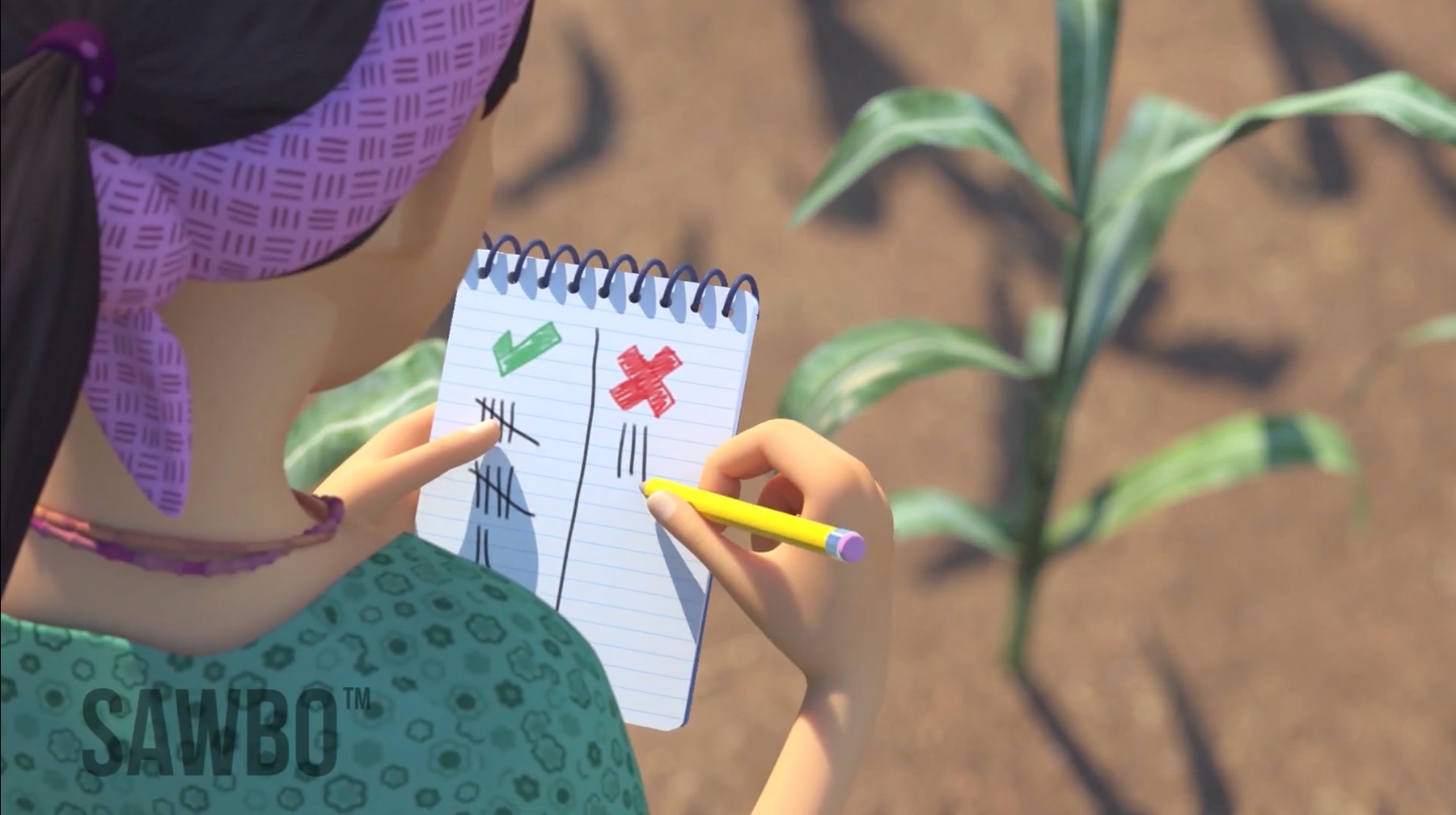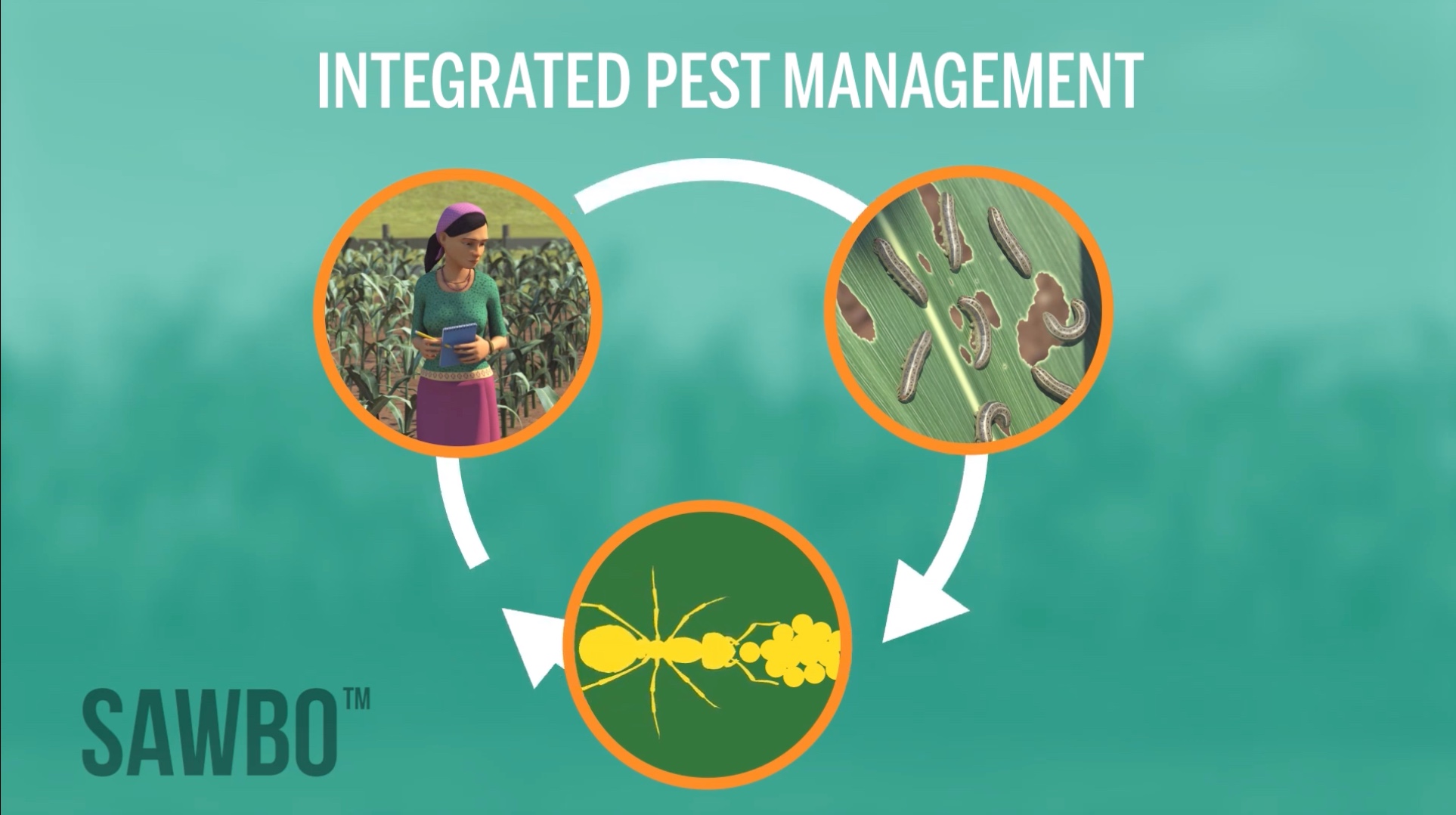Purdue researchers lead gender-inclusivity study from Bangladeshi extension training
The ravenous, destructive fall armyworm killed entire harvests in Africa before it arrived in Asia, first in India before making its way to Bangladesh. As officials there scrambled to head off an agricultural crisis in their country, an important tool in their arsenal was a video produced by a Purdue organization called Scientific Animations Without Borders (SAWBO).
Extension trainers with a non-governmental organization took the video to 1,070 events, where they reached over 137,000 Bangladeshi farmers. Along the way, they collected such event details as day of the week, time of day, trainer’s gender, venue and month of the year.
This data presented a rare opportunity for a Purdue-led research team to understand women’s preferences as a basis for encouraging their participation in agricultural extension services. The researchers published their findings in July 2022.
“We want to reach women, who are 50 percent of the workforce in agriculture in Bangladesh,” says the study’s lead author, John Medendorp, associate director of Purdue’s Center for Urban and Industrial Pest Management. “Unfortunately the structure of society and traditions make it difficult for women to participate.” Traditional extension services exclude women, not intentionally or by policy, but simply by how the events are conducted.

The research team’s data analysis clarified the factors that influenced women’s participation. For example, women favored certain days of the week, and the venue was especially important. The extension team conducted many trainings in public markets, community government buildings, teahouses and even at railgates, where several hundred people might stop to wait for passenger trains to go by.
But reflecting the strict Muslim society where women are expected to avoid public places, they were largely absent at these events. The data showed women chose to attend events at farmers’ or neighbors’ houses, and at mosques.
As the researchers identified single or combinations of factors that influenced the participation of women, they also discovered that trying to obtain gender parity in the training events reduced the overall number of people trained.
“Generally speaking, to increase women’s participation, you had to focus on factors that would reduce the overall participation,” Medendorp explains. “But we were able to come up with a number of factors that would result in women participating at the greatest possible extent while at the same time maintaining high levels of general participation.”
“This work, in progress and for the future, is focusing on using modeling to determine opportunities and tradeoffs associated with trying to obtain gender balance in highly scaled extension programs,” says Julia Bello-Bravo, assistant professor of agricultural sciences education and communication and senior author. “Such efforts are intent on driving the effectiveness of future scaling efforts.”

Bello-Bravo and Barry Pittendrigh, Osmun Endowed Chair in Urban Entomology and director of the Center for Urban and Industrial Pest Management, launched SAWBO in 2011 and now co-lead its efforts to transform extension information into animations that anyone can use for free for educational purposes.
SAWBO materials consider gender balance up front, Bello-Bravo says. “We are trying to empower women by providing the opportunities that men have had for a long time.” Animation allows some videos to switch up male and female roles without provoking audiences, she adds. “We also care about respecting norms and values in a way that no women are going to feel offended by the way they’re represented in animation.”
These animations — on more than 150 topic areas in 280 languages and dialects — enable other groups globally to scale educational content to large numbers of people.
SAWBO is primarily a research program to understand scaling, Pittendrigh says. “We collaborated with the group in Bangladesh that did the video deployment to do an analysis that gave us insight into gender imbalance issues associated with extension,” he explains. “This approach is part of SAWBO’s scaling for research in which research guides the next wave of scaling.”
Reaching women — and men — in agriculture doesn’t always require an extension agent, Medendorp adds. New technology for conducting large-scale extension training uses information and communication technologies (ICTs) that can generate rich datasets.
“There are now enough cell phones, even out in the most rural areas,” Medendorp says. “Really, all you need is one person with a device that is able to show a video in order for a person to become an extension agent, because the expertise does not lie in the person; it lies in the video.
“This allows us to bypass traditional extension systems to reach women and other marginalized groups,” he says. “We’re learning those factors that we can leverage in order to deliver literally life-saving information to people who might otherwise be excluded from traditional extension systems.”






